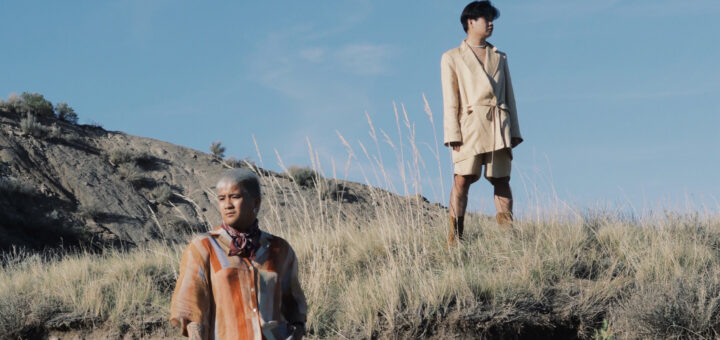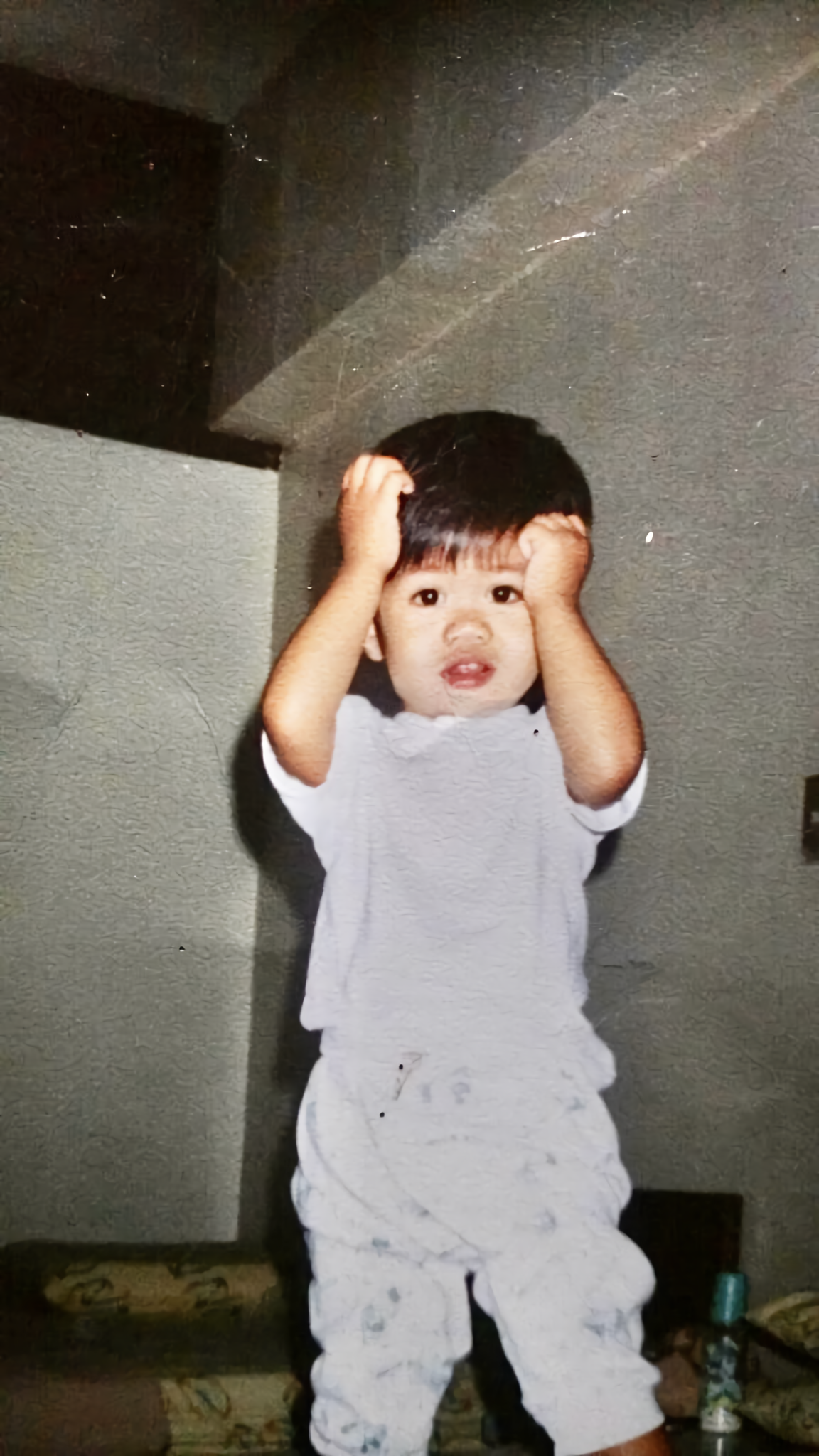Being queer and Filipino in Calgary: Contrasting Experiences

by Riggs Zyrille Vergara, Publishing Editor
Statistics Canada reports that more than 45% of Canadian students witnessed or experienced discrimination based on gender, gender identity or sexual orientation. One-third of the students they studied who identified as gay and lesbian reported having experienced discrimination because of their identity. The same is true for 34% of bisexual students and 34 % of queer students.
Mount Royal University alumnus and current preschool teacher Joshua Zarate told The Reflector that he was once one of these bullied students in high school for identifying as a gay guy. But his current partner Matthew Madrid, a 21-year-old animation student, did not experience this in high school at all.
It might have been an issue for their relationship at first, but even with those differences, their connection, along with the connection of being both Filipinos, made their bond even deeper with each other.
Enjoying high school
When Madrid was in sixth grade, that’s when he knew for sure that he likes guys. Unlike many gay people, Madrid felt secure enough with himself that he got to explore it as he grew older.
He found refuge exploring and sharing about his identity online. He made a lot of friends that way and garnered a lot of support on how his identity is something that he should always be proud of.
“Through the friends that I made online, I realized and accepted that it’s okay that I’m gay and I’m different, ” Madrid said.
Being proficient in English at such an early age was also a big factor as to why Madrid found socializing and making friends as a newcomer in Canada easy when he was in middle school. Madrid credits being fond of western media as the reason for this.
“It’s so weird how I never enjoyed Filipino media that much. I’m always drawn to English-speaking shows and movies,” he added.
This continued in high school. Madrid recalls having a positive overall experience in high school. He tells The Reflector this is where he found a group of friends where they fully support all his endeavours and interests.
“People knew I was gay because I was confident about it, and it was never an issue for anyone,”.
Madrid feels grateful for his friends that his high school experience was joyful and welcoming. He knows how rare it is for someone like him to have an enjoyable high school experience. Madrid even sees high school as the time and place where he got to explore a lot about his sexuality.
“If I didn’t have any moral support around me, I would’ve been a wreck.” he added.
Direct contrast
Zarate’s junior high school is a direct contrast to that of Madrid’s. It was in junior high school when Zarate had a feeling that he was different. He recalls being questioned by his peers for not having any male friends or not having any conventionally masculine interests like sports.
“I remember people saying ‘That’s so gay’ as to how I don’t have any guy friends,” Zarate said.
With these feelings of shame, Zarate felt forced to suppress his true interests. To fit in, he went for sports and reached out to more male friends and started dating girls. But Zarate knew deep down he wasn’t living authentically.
“Even during that time when I was dating girls, I felt something was wrong, but I didn’t want to come out at that time then,” Zarate added.
He recalls being bogged down by all this pressure to be something he’s not. This pressure, along with the stress of his studies and his future, was enough to keep Zarate late at night. He was always anxious about the possibility of a situation where he’ll be put on the spot about his identity.
“Being singled out, that was my biggest fear,” Zarate added.
Zarate also described how he didn’t tell anyone, especially his family, of the bullying he experienced in school. He felt alone. He sees this as part of the Filipino culture where they are not accustomed to showing any negative emotion when going through hardships in life.
“It’s part of that Filipino identity where you want to always put this front that everything’s fine and that you’re a strong individual, but in reality, you’re going through something hard.”
Zarate sees the importance of the community of gay Filipinos in Calgary. It gives him a unique family where he feels safe, loved and heard.
“Some of us may have gone through a lot of struggles, but there’s a lot of things we can connect with; our values, our friendships and our culture,”
Opposites attract
Although having completely different high school experiences as gay Filipinos, the couple sees it as learning opportunities from each other.
“We have grown to develop a strong relationship because of it,” Zarate said.
According to Madrid, this contrast, and even the other differences they have, contributed to the ongoing success of their relationship.
We’re quite similar in a lot of ways but if we didn’t have that different upbringing in high school shaping us to be who we were when we first met, we might’ve gotten too tired of each other too quickly. Had we shared all the same things, we most likely would’ve been burnt out,” Madrid pointed out.
Another difference between the two is how goal-driven Zarate is and Madrid is laid back. According to Madrid, this generated some issues at first in their relationship, but in the end, they figured out what works for them.
“Eventually we learned more about each other and were able to figure out a happy medium. I ground him while he’s able to push me to do more things,” Madrid added.
Western ideals of beauty
Similar to all the couples in this series, Zarate and Madrid met each other through a dating app. But Zarate isn’t exactly Madrid’s type of guy when he was in high school. As a newcomer in Canada, Madrid was fascinated with guys that fit the Western ideals of beauty – tall, white, blonde etc.
Madrid attributes this to his love of English-language media where it’s uncommon to see a gay character of colour, or if there is one, it’s painted as comedic relief.
“The chances of having a gay character in films before was slim. On top of being Asian? Even slimmer. You would only see straight white people and if there are gay people, they would also be white,” Madrid said.
But Madrid sees now that with the nuances of being Filipino like having strict families and being a person of colour, his connection with Zarate has been easier. Their empathetic understanding of each other’s life situations only strengthened their relationship.
“If I had gone to a different direction and matched with someone who was white, I feel like I wouldn’t have the same connection. I just think we wouldn’t share the same values because of what I go through in life as a Filipino,” Madrid added.
Being gay and Filipino
As someone who was born in the Philippines, Madrid firsthand saw how hardworking, yet hospitable native Filipinos are and this is something that he wants to instill in himself even if he’s already in Canada. He made sure that his Canadian-born younger brother would learn this as well when they visited the Philippines.
“Respect…it was something we had to teach my brother a lot. Like in food, people are preparing the food for you because they made it for you. You have to eat what Lola cooked you.” Madrid added.
He also saw how even if a lot of them go through a lot of hardships in life, they never fail to smile and be optimistic.
“Filipino people always find ways to make themselves happy no matter what,” Madrid added.
Part of what solidified this certain optimism of Filipinos for Madrid was seeing how gay Filipinos are celebrated in their own country.
“In other countries, a lot of gay people are being beaten and executed for being gay. In the Philippines, most people are celebrated for being gay.
On the other hand, Zarate who was not born in the Philippines sometimes feels that his Filipino identity is not that complete. This is especially when compared to his friends who mostly were more directly exposed to the culture. He describes his family as having a lot of western influences, so he didn’t get to learn a lot about the culture from them either.
“But I don’t blame my family at all. I feel like when you go to Canada, you don’t want to be left behind, especially things like speaking English,”
Zarate explains that not being able to speak English in grade school puts a student at a disadvantage. He knew that his parents didn’t want this for him and his sister. So, he understood why his parents made sure that he can assimilate quickly to the language and the culture.
“Part of my Filipino identity got lost, cause all I know is my Canadian identity,” Zarate said.
Because of this, Zarate sometimes feels something is missing in his identity.
“There are days where I say to myself, ‘I wish I grew up in the Philippines’”, Zarate added.
But through the Filipino community that he had built for himself here in Calgary, he doesn’t feel alone. He feels even prouder of his heritage when he is with family and friends. He sees his Filipino Canadian identity as unique enough to bear its own stories.
“I’m hoping when I get older I can share what I know for myself as a Filipino Canadian and pass it to my children,” Zarate said.
“Learning about your heritage is important but also the identities we build as Canadians and as immigrants are just as strong,” Zarate added.
This article is one of four stories included in the series “Being gay and Filipino in Calgary”. To access more of these stories, click here.







